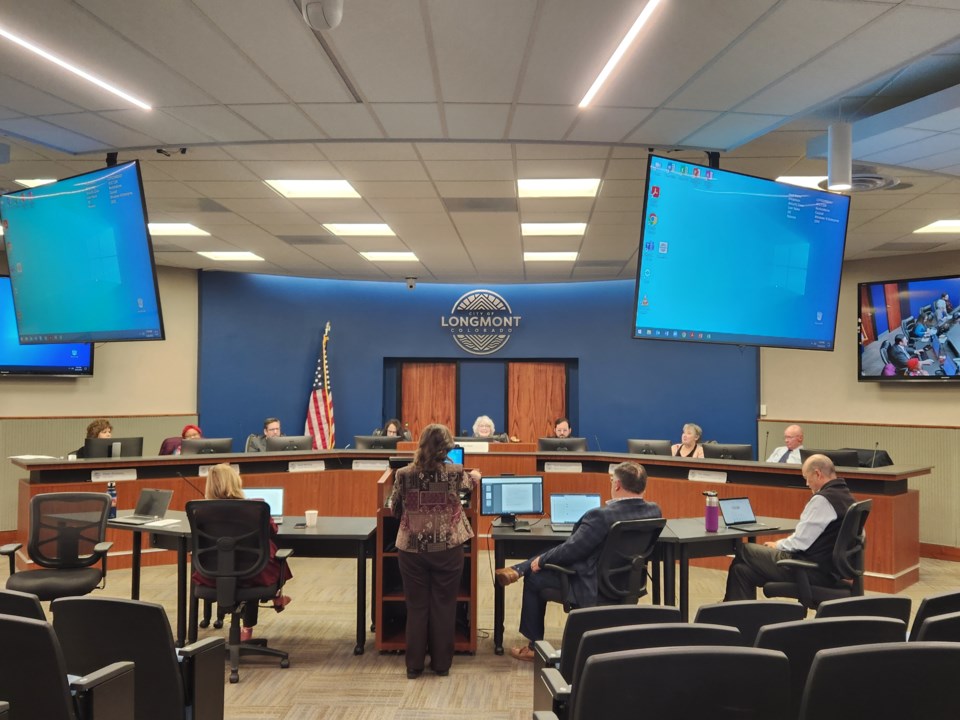Longmont Mayor Joan Peck plans to give Longmont residents and city employees the first chance to speak at city council meetings — and have out-of-city speakers wait until the end of meetings to voice their comments.
Before the first call for the public invited to be heard on Tuesday, Peck said she would begin enforcing a rule of procedure from the city charter. She explained that if she can’t verify the speaker lives in Longmont with an address, the speaker will instead have to wait until the second call to be heard to share their thoughts with city council.
“The expectation is to make sure that we hear what our public in Longmont, the city of Longmont, want their elected officials to hear,” Peck said. “We spend a lot of time — a lot of time — at this council listening to people from Lafayette, from Denver, but the only way that I know of (to verify they are from Longmont) is to have them put down their address.”
She added that she would prioritize speakers talking to items on the agenda and relevant to Longmont City Council.
Councilmember Tim Waters objected to the change, accusing the mayor of creating new rules of procedure.
“I don’t think we have the latitude to simply make up new rules without a vote of the council in terms of council rules of procedure, and it would be a vote of the public to change the charter,” he said.
Tensions about this topic have been brewing alongside conversations about where donors to campaigns in Longmont could list a post office box as their address. Waters, who wanted donors to be able to list a PO box, noted in debate that the city council doesn’t require addresses from public commenters, but Peck disagreed.
At last week’s public forum, this debate came to a head with a public commenter who didn’t want to share where she lived in unincorporated Boulder County, which led to a heated back and forth.
Longmont City Attorney Eugene Mei quoted the city charter, which specifies that residents and employees of Longmont should have an opportunity to be heard by city council, but said enforcement could be problematic.
“I think there’s a variety of ways to approach limiting first calls to citizens and employees. I think per our charter we can exclude non-citizens and (non-)employees of Longmont,” Mei said, later noting that citizens in this context refers to any Longmont resident.
Peck noted that a previous mayor facilitated public comment in a similar manner and held that it wasn’t unusual.
During the public comment, several people passed on commenting saying they were not a Longmont resident. The second call for the public to be heard did not open until nearly 10 p.m., and no residents from outside Longmont spoke with most members of the public having already left.



